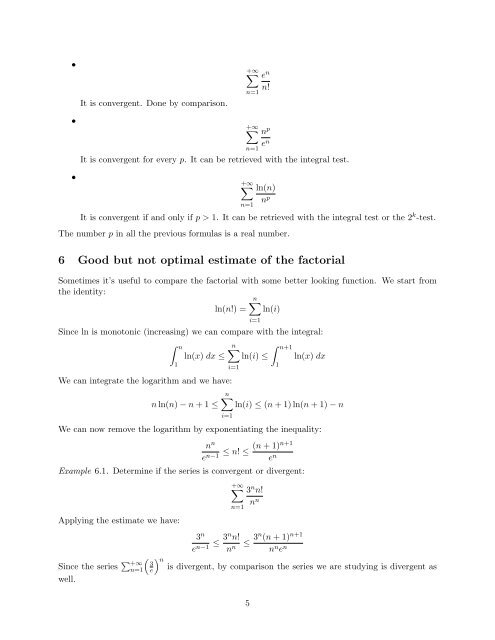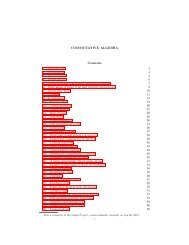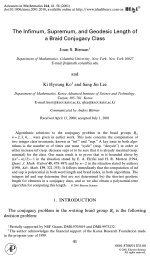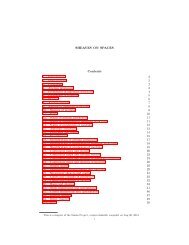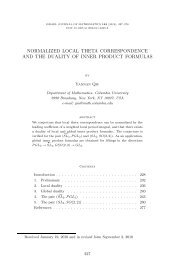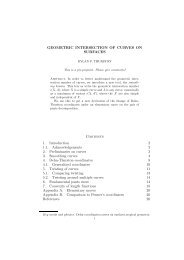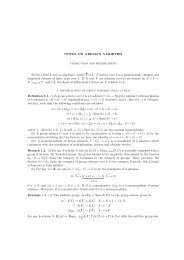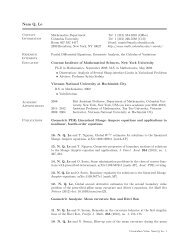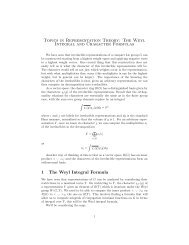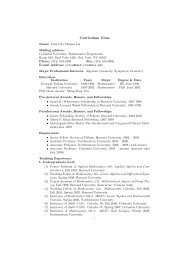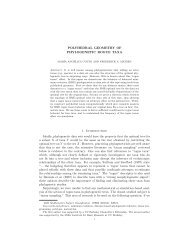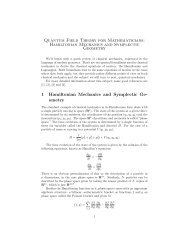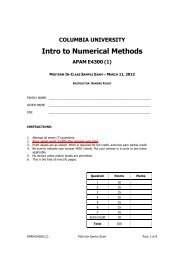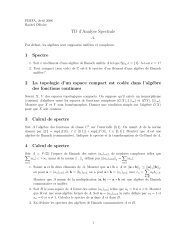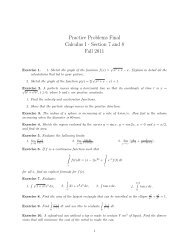Series CheatSheet
Series CheatSheet
Series CheatSheet
Create successful ePaper yourself
Turn your PDF publications into a flip-book with our unique Google optimized e-Paper software.
•<br />
•<br />
•<br />
It is convergent. Done by comparison.<br />
It is convergent for every p. It can be retrieved with the integral test.<br />
+∞<br />
n=1<br />
+∞<br />
n=1<br />
+∞<br />
n=1<br />
e n<br />
n!<br />
n p<br />
e n<br />
ln(n)<br />
n p<br />
It is convergent if and only if p > 1. It can be retrieved with the integral test or the 2 k -test.<br />
The number p in all the previous formulas is a real number.<br />
6 Good but not optimal estimate of the factorial<br />
Sometimes it’s useful to compare the factorial with some better looking function. We start from<br />
the identity:<br />
n<br />
ln(n!) = ln(i)<br />
Since ln is monotonic (increasing) we can compare with the integral:<br />
n<br />
1<br />
ln(x) dx ≤<br />
i=1<br />
n<br />
ln(i) ≤<br />
i=1<br />
n+1<br />
1<br />
ln(x) dx<br />
We can integrate the logarithm and we have:<br />
n<br />
n ln(n) − n + 1 ≤ ln(i) ≤ (n + 1) ln(n + 1) − n<br />
We can now remove the logarithm by exponentiating the inequality:<br />
i=1<br />
nn (n + 1)n+1<br />
≤ n! ≤<br />
en−1 en Example 6.1. Determine if the series is convergent or divergent:<br />
Applying the estimate we have:<br />
Since the series +∞<br />
n=1<br />
well.<br />
+∞<br />
n=1<br />
3 n n!<br />
n n<br />
3n en−1 ≤ 3nn! nn ≤ 3n (n + 1) n+1<br />
nnen n 3<br />
e is divergent, by comparison the series we are studying is divergent as<br />
5


